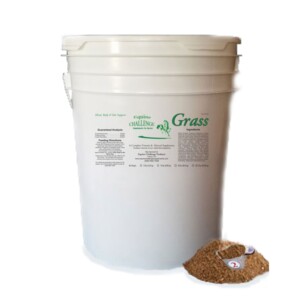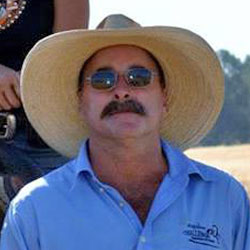Many of your questions can be found here on our Equine Challenge Supplements Frequently Asked Questions page. If you don’t see what you’re looking for, please contact us by phone or email.
If your horse is on an alfalfa diet you will want to order one of the Equine Challenge forage specific Vitamins & Minerals Alfalfa blends (original, no added selenium or southwest}. If your horse is being fed a grass, oat, wheat, etc… forage, you will want to order one of the forage specific Equine Challenge™ Vitamins & Minerals Grass blends (original, no added selenium or southwest)…….. Shop for Daily Vitamins/Minerals now.
 If your horse is being fed 8 lbs. of alfalfa or more per day, order the Equine Challenge™ Vitamins & Minerals for alfalfa fed horses. Horses being fed a 50/50 blend of alfalfa and grass should be fed Equine Challenge Vitamins & Minerals for alfalfa fed horses. Horses fed a blend of alfalfa and grass with a higher percentage of grass and less than 8 lbs. of alfalfa per day will need Equine Challenge™ Vitamins & Minerals for grass fed horses……. Shop for Daily Vitamins/Minerals now.
If your horse is being fed 8 lbs. of alfalfa or more per day, order the Equine Challenge™ Vitamins & Minerals for alfalfa fed horses. Horses being fed a 50/50 blend of alfalfa and grass should be fed Equine Challenge Vitamins & Minerals for alfalfa fed horses. Horses fed a blend of alfalfa and grass with a higher percentage of grass and less than 8 lbs. of alfalfa per day will need Equine Challenge™ Vitamins & Minerals for grass fed horses……. Shop for Daily Vitamins/Minerals now.
For non-performance horses, we recommend 2 oz. per day. For horses previously not on any supplement regimen, we recommend an initial loading dose of 4 oz. (2 oz. in the a.m. and 2 oz. in the p.m.) daily for 3 to 4 weeks, adjusting dosage thereafter to 2 oz. daily.
For performance horses and horses in training we recommend 4 oz. per day (2 oz. in the a.m. and 2 oz. in the p.m.).
For pregnant and lactating mares we recommend 4 oz. per day (2 oz. in the a.m. and 2 oz. in the p.m.)
YES! All Equine Challenge™ products are made to synergistically work together. If you have any questions please call our office at (559) 905-7528 for more information.
In order to avoid interfering with the synergistic balance of our supplements, when starting Equine Challenge™ it is recommended you stop all other forms of vitamin and mineral supplementation.
We recommend the feeding of whole oats to your horse with Equine Challenge™ Supplements.
In the early 2000’s there was an effort by the Association of American Feed Control Offcials (AAFCO) as reported by the Journal of American Veterinary Medical Association to regulate or remove nutraceutical ingredients such as glucosamine, chondroitin, yucca, creatine, MSM, etc… from animal use. The FDA views nutraceuticals as “drugs of low regulatory priority” and not as a feed. In an effort to keep these valuable ingredients available for all animals, including horses, the National Animal Supplement Council (NASC) was formed and set forth guidelines to satisfy both the AAFCO and the FDA concerning the application of nutraceuticals for animal use. In a nutshell, these guidelines of mixing nutraceuticals with daily vitamin & mineral supplements/feeds are prohibited. 60% of supplement manufacturers comply with the guidelines set forth by the NASC and 40% do not. Many who do not comply use the “All In One Bag” as a marketing tool to promote their products as more convenient. Equine Challenge™ complies with all guidelines set forth by the NASC and feels that stewardship demands the use of “one more scoop” from the Equine Challenge™ Joint Support, On Demand or Controlled Power bag to ensure nutraceuticals are always available for all our loved animal family members to include the horse.
No, Equine Challenge™ will not get hard after opening the bag because we do not add any vegetable, peanut, canola or mineral oil to any of our products.
Yes it will. First you have to understand what “hay belly” or “grass belly” is. The horse is a hind gut fermentor which requires bacteria, digestive enzymes and protozoa to complete the digestive process in the horses cecum. Therefore, hay or grass belly represents undigested matter in the cecum due to a lack of the digestive bacteria, enzymes and protozoa. Equine Challenge™ contains a live and viable micro-organism 7 strain pro-bacteria package which facilitates complete digestion of matter in the cecum. We use a great deal of the bacillus bacteria which when activated in the cecum will begin to produce digestive enzymes. Typically your horse will lose it’s grass or hay belly 2-3 weeks after beginning Equine Challenge™.
Horses eat manure to reinvest bacteria into their gastro-intestinal systems. The horse is a hind gut fermenter and requires a great deal of bacteria to effectively digest it’s food. Foals are born with out any natural flora or bacteria, therefore eating manure will invest bacteria in the gut and of course worm eggs and many other nasty things. Using Equine Challenge Vitamins & Minerals™ or Equine Challenge Probiotic Blast will invest a great deal of pro-bacteria into the gut. Other enemies of your horses natural bacteria are foaling, de-worming, antibiotic therapy, abrupt feed changes, vaccinations, trailering, shows, depression, separation anxiety and anything which stresses the immune system.
Whole oats are pretty much as described…whole meaning they are as they were harvested. Typically they are cleaned and freed of small rocks and foreign matter, but they are unprocessed and their double hull has not be breached. Recleaned whole oats aka “Racing oats” generally have had their outer hull removed.
Crimped oats are cut which violates the double hull of the oat which leads to desiccation of the germ, bran and the 7 different fatty acid or oils. This is why crimped oats are a lot lighter in weight than whole oats.
Rolled oats have been crushed so it stands to reason this form of processing will quickly lead to desiccation of the internal structure of the oats just like the crimped oats.
If one reads the feed tag or the Guaranteed Analysis, it would appear as if there is very little difference in the nutritional contents of these three different forms of oats. The reason of this is quite simple. If one tests the nutritional content of the crimped oats and rolled oats just after the processing is done, it would stand to reason to expect the processed oats to be similar to the unprocessed whole oats.
Whole oats and processed oats be it crimped or rolled are bagged, shipped and stored at the warehouse, moved by truck or train to the different states, then to more local distribution warehouses and eventually to your local feed store where they remain until you buy them and feed to your horse. As you can imagine, a great deal of time will have passed. By then who knows what level of desiccation has occurred to the processed oats?
There is a reason why crimped and rolled oats many times will be infused with a mold inhibitor, the processed oats have been violated and the portal of entry for mold and such has been created with the processing.
From time to time we are asked to define what is meant by the terms Natural and Artificial Flavoring. We are also from time to time asked why the need to use artificial flavoring in Equine Challenge™.
First I will address Natural flavoring because it is the easiest. Natural flavoring is the flavor that exists in the item naturally. For instance, flax has a taste, carrots and whole oats have a natural flavoring which will of course distinguish it as, in this case flax.
Artificial flavoring is that which is added in most cases to mask an unpleasant natural taste or smell. For instance, methionine, an amino acid, a common ingredient in horse supplements, is a very unpleasant smelling and tasting amino acid but methionine is a very necessary amino acid for your horse. Copper and zinc are not nice tasting minerals but most would not know that in so far as humans will take these valuable minerals in tablet form and swallow with water so you never know or experience the unpleasant taste of these two minerals.
Giving your horse tablets is a difficult thing but your horse has a very sensitive and educated smell and taste as a survival mechanism so. sometimes it helps to mask the nasty stuff with something which is more pleasant.
So what exactly do we use as the molasses flavoring in Equine Challenge™? The “molasses flavor” comes from a proprietary blend of vanilla notes, botanical extracts and some aroma chemicals (all chemicals are EU approved as they are naturally found in different extracts, plants, etc). The most common are spices, nuts, herbs, fruits some flowers, cinnamon, cloves, ginger, lemon, nutmeg, orange, peppermint, spearmint, vanilla, violet and wintergreen. Artificial is anything that is manmade. Equine Challenge Supplements are very palatable and most horses will eat it right from your hand.
The Canadian milled flaxseed base of most Equine Challenge Supplements is GMO free. The yeast culture used in our supplements is not GMO free.
Yeast Culture is an ingredient produced by fermenting selected liquid and cereal grain raw ingredients with bakers yeast (Saccharomyces cerevisiae) and drying the entire culture-media without destroying the yeast factors, B-vitamins and other fermentation products. It is used in a wide variety of animal feeds including dairy, swine, beef, horse, poultry, aquaculture and pet foods.
In manufacturing yeast culture, the following ingredients are used: Saccharomyces cerevisiae yeast and the media on which it was grown can consist of ground yellow corn, hominy feed, corn gluten feed, etc…
It would be the corn that would not be GMO free.
The live yeast and yeast culture used in the manufacturing of Equine Challenge’s™ Yeast+ product are both Made in the USA!
Though there may be a few companies that state their Equine Supplements are GMO free, one must be very careful in making that claim given it can be difficult to know exactly where the source of a vitamin or mineral comes from. If that source is not GMO free, the product is not GMO free.

